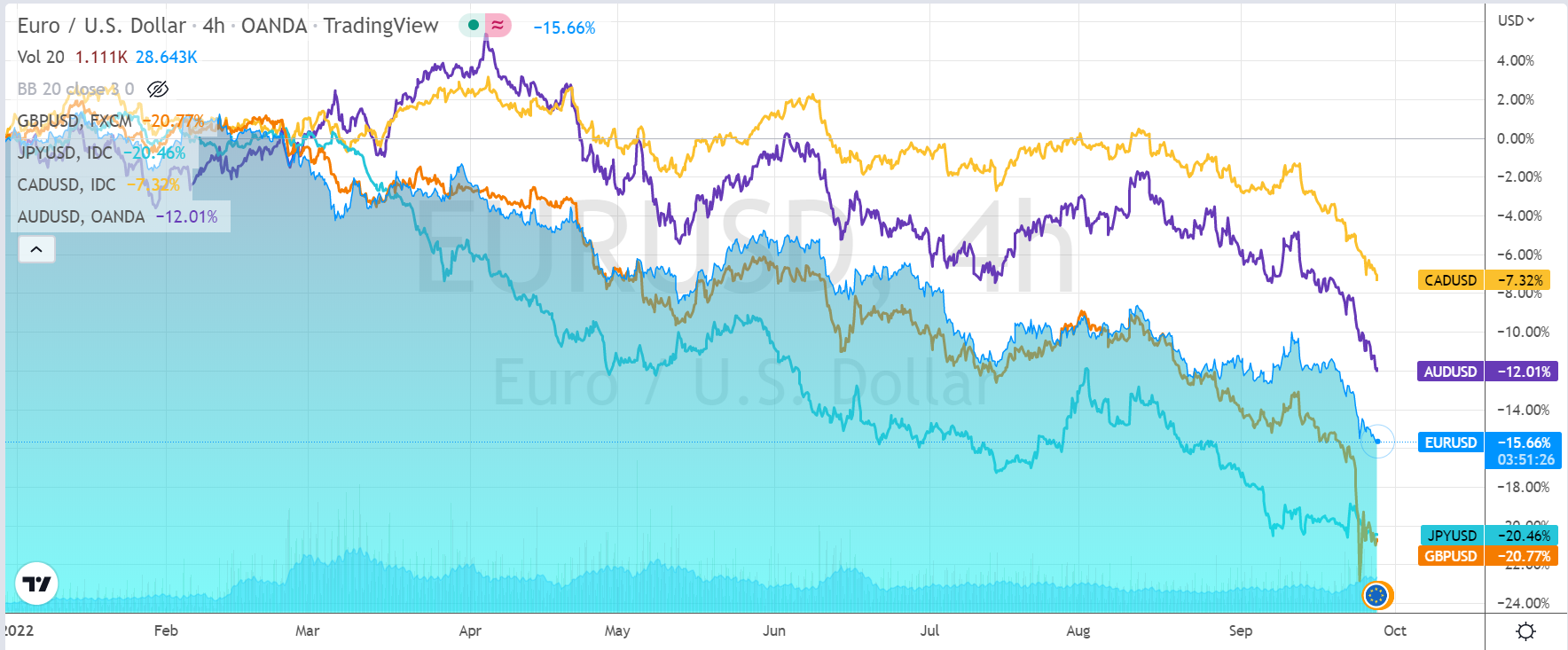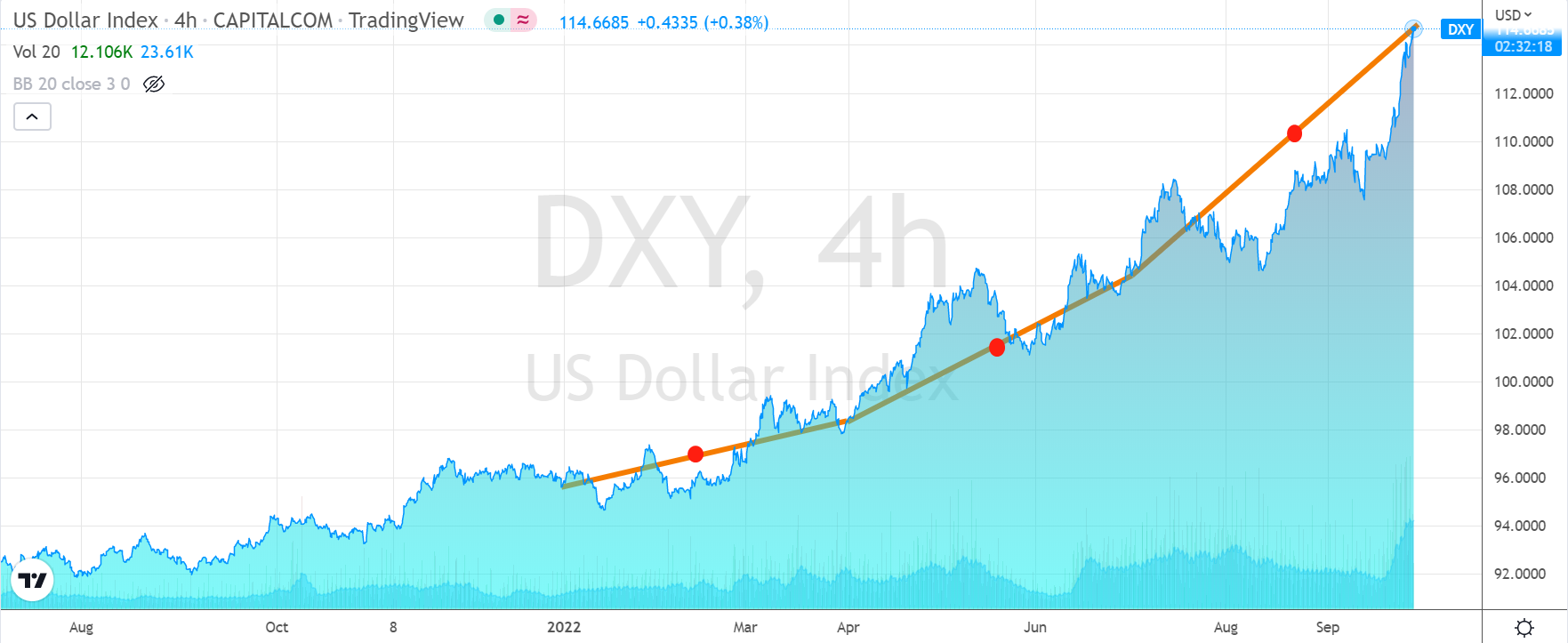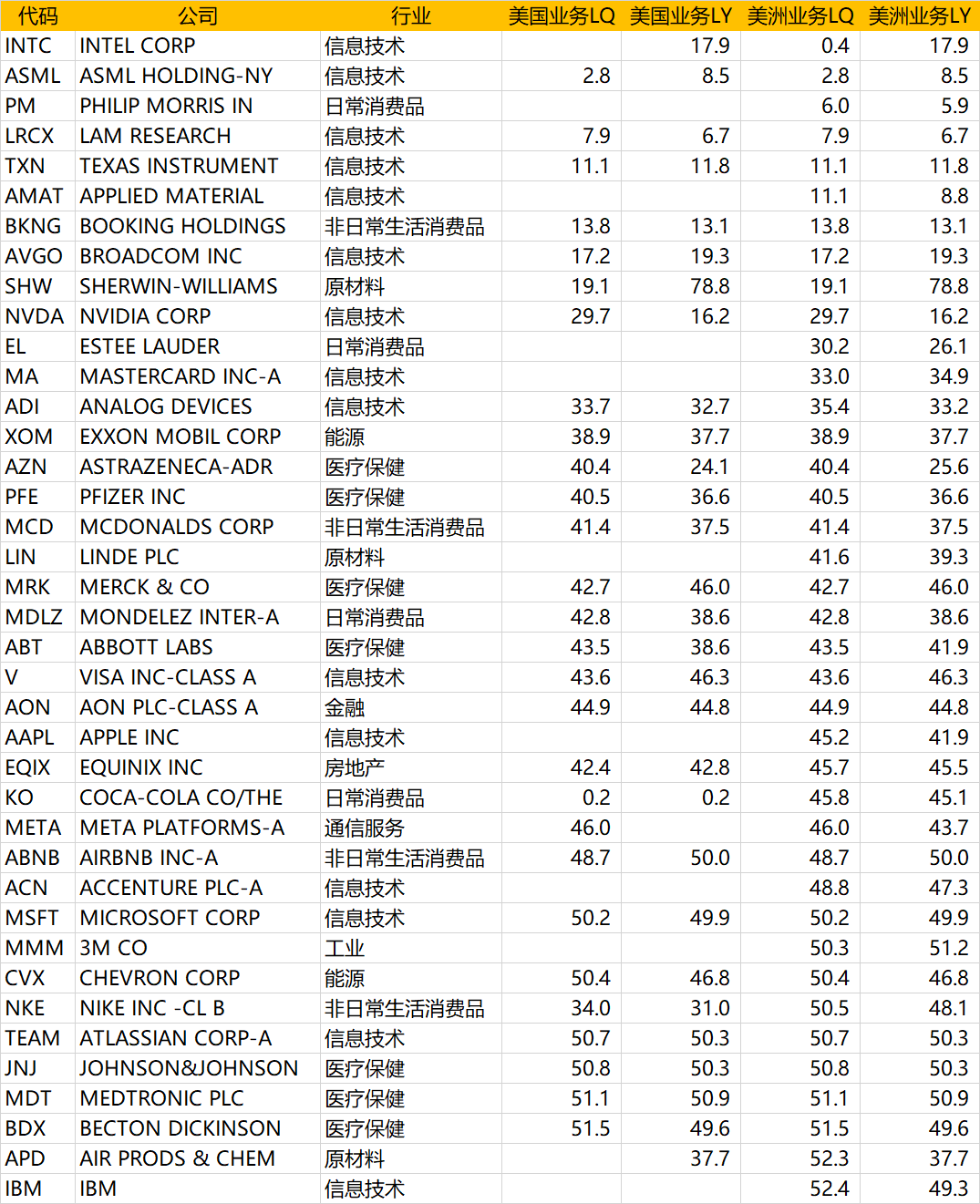Under most circumstances, equity investors are not sensitive to currencies, but since the second half of this year, almost all currencies in the world have depreciated to US dollars, which may "unexpectedly" affect the performance of Q3.
Fed's interest rate increase is one reason, major economies except Japan (the Bank of Japan has adopted extensionary monetary policy) are actually following. Why their currencies still clapse?
Russia-Ukraine crisis would be another reason, then why commodity currencies like Canadian dollar and Australian dollar can't get rid of the decline neither?

The pivotal reason for strong USD are fears of global recession, which highlights the "safe-haven" value. As a fundamental pricing currency, the US dollar is the safest asset in the "stagflation" and recession.Therefore, not only overseas assets returned to US dollar assets, but other domestic risky assets also further flowed to US dollar cash, resulting in the strongest US dollar in more than 20 years.
As for how to invest the US dollar, refer to, "Dollar Index Hit 20-Year High! How to invest USD with USD? "
Now, How will such a strong US dollar affect the company's performance?
In Q1 and Q2, the majority of multinational companies have revealed "the forex headwind" in their financial reports and telephone conferences. Obviously, companies with a high proportion of overseas business are more affected by the "appreciation of the US dollar"
Enterprises follow IFRS or US GAAP accounting standards, will use three methods to calculate exchange rate conversion, currenct method, average method and historical method.
Obviously,
- Currenct method will use the certain point data in time, such as the end of the month;
- Average method will take into account certain dynamic changes during the season;
- Historical method often chase some assets and cost items.
The income statement items are mostly calculated by the average method.
Then we could see from the trend of the US dollar index
The average growth rate of Q2 is greater than Q1, and the growth rate of Q3 until September 28 is also greater than Q2. There is no possibility of a sharp drop in the next two days, which means, Forex headwinds: Q3>Q2>Q1.
It implies foreign exhcange gain/loss of Q3 will be greater than that of Q2 (Comparison of this relative value)
Even if we look back at the expectations of Q2 multinational companies at the performance meeting, although the headwind brought by exchange rate changes is mentioned, those executives may not all calculate with the expectation of "the strongest dollar in 20 years". After all, the euro fell back to the beginning of 2000, the yen fell back to 1998, and the pound fell at an unprecedented low. If the impact of the final financial report exceeds the previous expectations of executives,That means that it is more likely that the performance will fall short of expectations! (Comparison to market consensus.)
We need to pay more attention to which companies have more non-US dollar business, and those companies are likely to be more affected. The following are$NASDAQ(.IXIC)$And$S&P 500(.SPX)$The proportion of North American business of the 60 companies with the largest market value in the index.
Please note, some companies' segment revenue lies on "US business", while others classify as "North American" or "Americas". There would be a little differences when CAD or MXN exist.
Companies whose market value more than 50 billion US dollars and has less than 50% of North American business were sorted out. Information industry account for a relatively high proportion, and there are also many consumer goods companies too.
Most of them are familiars, $Apple(AAPL)$$Microsoft(MSFT)$$Intel(INTC)$$Estee Lauder(EL)$$Coca-Cola(KO)$$McDonald's(MCD)$$NVIDIA Corp(NVDA)$Wait.
Of course, when we look at whether a company's US dollar revenue accounts for a high proportion, it is mainly used to judge the impact of exchange rate, but cannot determine the overall performance of the company. For example, supply and demand, cost, etc. In addition, many international business companies will carry out certain foreign exchange hedging to avoid certain exchange rate risks.
Generally speaking, these companies with a very high degree of international business will definitely suffer from stronger foreign exchange headwinds in Q3, which will also increase the uncertainty of financial reports to a certain extent. Whether a company can handle foreign exchange fluctuations well has also become one of the important indicators of corporate financial management.
Let's see which excellent CFOs have excellent execution to lead the company finances.
$欧元主连 2212(EURmain)$$英镑主连 2212(GBPmain)$$加元主连 2212(CADmain)$$澳元主连 2212(AUDmain)$$日元主连 2212(JPYmain)$$美元指数(USDindex.FOREX)$



Comments